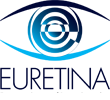A US company, LumiThera Inc., based in Seattle, WA, has announced a multi-centre clinical registry study to enroll up to 1,000 AMD patients with their photo-biomodulation (PBM) device – aimed to activate mitochondrial respiratory chain components resulting “in stabilization of metabolic function and initiation of a signalling cascade, which promotes cellular proliferation and cytoprotection”, according to the company. The company will aim to include up to 20 European centres and could be expanded in other countries outside the Europe Union (EU) where the their device “Valeda” is approved. The medical device (termed as their Valeda Light Delivery System) has developed a CE mark to use wavelengths of light in the far red to near infrared spectrum (590, 660 and 850 nm) to modulate biologic function through direct and indirect cellular effects on mitochondrial respiratory chain components. PBM activation “of photo-acceptors in the mitochondria improves generation of adenosine triphosphate (ATP), modulates the production of intracellular signalling molecules such as reactive-oxygen species (ROS) and nitric oxide (NO), and triggers secondary effects that produce sustained changes in cell function and viability”.
The European Union Registry Study (“EUROLIGHT”) will collect safety and clinical efficacy outcomes (BCVA and OCT) data from multiple centres that have been treating dry AMD subjects. The company suggested that the large registry “will collect data retrospectively with centres providing existing data from subjects who underwent PBM treatment every 4-6 months for up to three years”. The data will be used to support “reimbursement in multiple countries and provide important clinical information on real-world use of Valeda”. Dr. René Rückert, MD, MBA, Chief Medical Officer, LumiThera commented that a previous series of “trials demonstrated improvements of visual benefits with PBM treatments in a prospective randomized clinical trial (RCT) design. The RCT results demonstrated clinical benefits in early to intermediate patients out to two years with anatomical evidence of slowing of AMD disease progression.”
The company have estimated that ~16,000 patients in Europe and Latin America have been treated to date on their PBM treatment. Dr. Oygunn Uthiem, MD, PhD, Department of Medical Biochemistry/Department of Ophthalmology, Oslo University Hospital stated that, “we are thrilled to be part of the EUROLIGHT study. We have treated over 350 patients in the last four years and have seen the real-world benefits of Valeda treatments in our patients. We have started to upload data into the registry database and have obtained over 70 informed consents from patients that want to be part of the study. Our patients have strictly followed the clinical trial protocols and been tested every 4-6 months, some for up to four years.”
